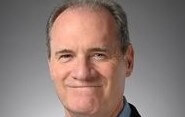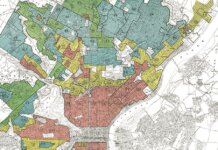 BLOG VIEW: It appears that the latest shtick in state government is the push for casinos as the commercial real estate answer to economic development. A few weeks ago, this column detailed efforts by New York Gov. Andrew Cuomo – also a former secretary of the U.S. Department of Housing and Urban Development – to shoehorn a Malaysian-run casino into a dubious convention center scheme in New York City. Now, the casino bug has bitten the politicians in Maryland.
BLOG VIEW: It appears that the latest shtick in state government is the push for casinos as the commercial real estate answer to economic development. A few weeks ago, this column detailed efforts by New York Gov. Andrew Cuomo – also a former secretary of the U.S. Department of Housing and Urban Development – to shoehorn a Malaysian-run casino into a dubious convention center scheme in New York City. Now, the casino bug has bitten the politicians in Maryland.
In this case, the center of attention is National Harbor, a mixed-use complex located in Maryland's Prince George's County, which is across the Potomac River from Washington, D.C. Although it is a privately owned complex, Maryland's taxpayers helped foot the bill for its creation. According to a report by Baltimore's WBAL-TV, the county and the state provided $360 million over the past seven years to National Harbor, which cost $870 million to build.
However, things haven't been too rosy at National Harbor. Last year, the Gaylord Hotel, the complex's anchor attraction, saw a 4.9% decline in its occupancy rate and a 9.6% drop in visitor spending outside of the hotel. Disney, which toyed with the idea of creating a resort at National Harbor, changed its mind and withdrew from placing its footprint at the complex.
So what can be done to make National Harbor more interesting? Ka-ching! How about adding a casino?
Indeed, MGM Resorts International has turned up as the proverbial white knight. But the presence of this company comes with several lethal caveats.
For starters, MGM is insisting that Maryland lower its 67% tax rate on gambling revenue to about 52%. James J. Murren, MGM's chairman and CEO, declares the current tax rate ‘egregiously high’ and insists that his company cannot possibly operate a casino under the current set-up.
Hmmm, that's interesting, because none of the developers and owners of Maryland's existing and proposed casinos have expressed any problems doing business with the current tax rates. And MGM's insistence that it receives a tax cut stands in stark contrast to burden carried by Maryland's financially successful residents, who received a 14% tax increase on July 1. Why is an out-of-state company trying to get a sweetheart tax break while Marylanders have to pay more in taxes?
Needless to say, the National Harbor casino's supporters have trotted out that hoary chestnut about how casinos can bring in endless job opportunities. The main entity pushing that line is the Washington, D.C., Building and Construction Trade Council, which has been running radio and television advertisements full of mighty claims that new employment and revenue streams will appear if the project gets state approval.
Well, yes, there will be jobs – especially union construction jobs – hence the council's eagerness to get the project moving. And I am sure that once the casino is up and running, there will be numerous chances for local folks to fulfill their career goals of being cocktail waitresses, food court cashiers and washroom attendants.
As for revenue streams, that seems to be wishful thinking. WBAL-TV has reported that the state's existing casinos are already cannibalizing each other's bottom lines: The Hollywood Casino in Perryville saw a 20% revenue drop after the Maryland Live! Casino opened in Hanover last month. And both the Cordish Cos. (which runs Maryland Live!) and The Caesars Group (which is planning a Harrah's casino in Baltimore) have openly stated that a National Harbor casino would seriously damage their revenues.
There is also Penn National Gaming, which is seeking to open its own Prince George's County casino at Rosecroft Raceway in Fort Washington. That company spent more than $877,000 between Nov. 1, 2011, and April 30, 2012, on lobbyists to push its project, which is not favored by Rushern Baker III, the Prince George's County executive who recently held a $250-a-person fundraiser at (where else?) National Harbor.
Oh, there is also a matter of changing state law to allow table games at the proposed National Harbor casino. Right now, Maryland casinos can only offer slot machines and electronic games. There has been a big fuss in the state legislature over whether a special summer session should be called to address this matter.
If Maryland's politicians were serious about using commercial real estate to improve the state's economy, they would focus on strategies such as a positive tax structure to attract growth industries and encourage the construction of affordable multifamily housing (something that is seriously lacking in Prince George's County). Casinos do not offer a serious answer to economic challenges – just take a look at the local economies in Las Vegas and Atlantic City!
But, then again, can you really argue with people who don't understand the basic tenets of economic development? Indeed, Gov. Martin O'Malley is trying to trim away Maryland's $1 billion deficit by having the state double its $30 ‘flush tax’ on septic systems – which is ironic, since the state's latest efforts to dig itself out of a financial hole is the political equivalent of flushing taxpayer money down the toilet.
– Phil Hall, editor, MortgageOrb
(Please address all comments regarding this opinion column to hallp@mortgageorb.com.)













